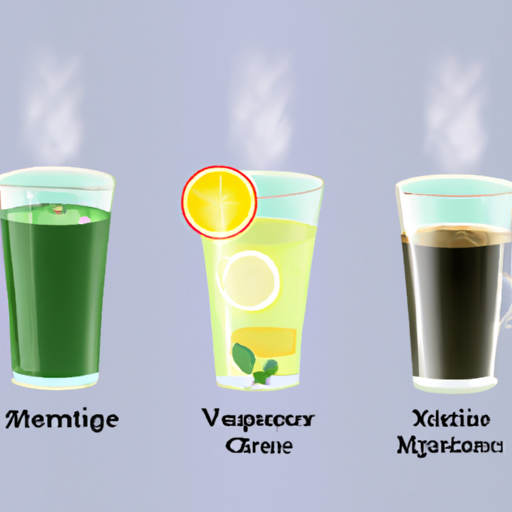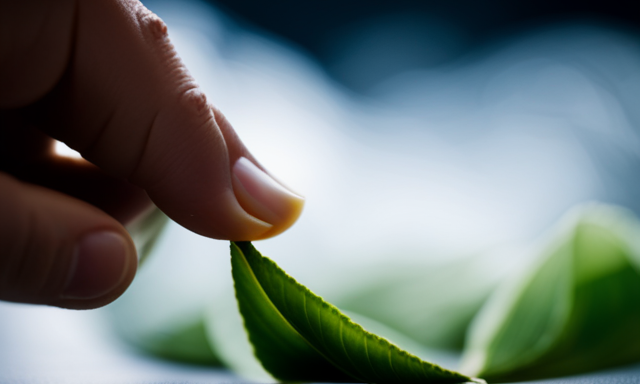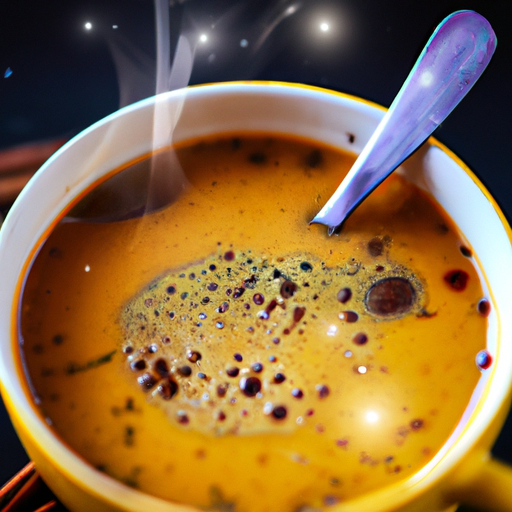Are you tired of feeling like a parched desert during your intermittent fasting journey? Well, fear no more! I have discovered a treasure trove of thirst-quenching delights that will keep you hydrated and satisfied while sticking to your fasting routine. Prepare to have your taste buds tantalized and your energy levels boosted with these incredible beverages.
From the ultimate hydration option of water to the metabolism-boosting powers of green tea, and even the potential health benefits of apple cider vinegar, there is a drink for every fasting warrior out there. Forget about feeling deprived and embrace the refreshing alternatives that will keep you on track towards your health goals.
So, grab a glass, sit back, and let’s dive into the world of delicious and nourishing drinks that will enhance your intermittent fasting experience. Cheers to a hydrated and successful fasting journey!
Key Takeaways
- Water is the best option for hydration during intermittent fasting.
- Black coffee can provide energy, boost metabolism, suppress appetite, and has antioxidant benefits.
- Green tea can boost metabolism, increase fat oxidation, and improve insulin sensitivity.
- Herbal tea can have antioxidant properties, aid digestion, promote relaxation and sleep, and support natural cleansing processes.
Water: The Ultimate Hydration Option
Water’s the ultimate way to stay hydrated during intermittent fasting, so drink up and feel refreshed! Staying hydrated is crucial during fasting because it helps maintain bodily functions and prevents dehydration.
Water provides numerous benefits for the body, such as improving digestion, boosting metabolism, and promoting detoxification. It also helps control hunger cravings, making it easier to stick to your fasting schedule. Additionally, drinking enough water can enhance mental clarity and focus, helping you stay productive throughout the day.
Aim to drink at least 8 glasses of water per day, and even more during fasting periods to compensate for the lack of hydration from food.
Now, let’s move on to another great option: black coffee, a boost of energy.
Black Coffee: A Boost of Energy
For a serious jolt of energy, nothing beats a piping hot cup of black coffee during intermittent fasting! Black coffee is a great option because it contains caffeine, which can boost focus and reduce fatigue.
Here are four reasons why black coffee is a perfect choice during your fasting window:
-
Energy boost: The caffeine in black coffee stimulates the central nervous system, giving you a much-needed energy boost.
-
Increased metabolism: Black coffee has been found to increase metabolism, which can help with weight loss during intermittent fasting.
-
Appetite suppression: Drinking black coffee can help suppress your appetite, making it easier to stick to your fasting schedule.
-
Antioxidant benefits: Black coffee is rich in antioxidants, which can help protect against cell damage and inflammation.
Now let’s move on to the next section about green tea, a metabolism booster that can further enhance your intermittent fasting journey.
Green Tea: A Metabolism Booster
If you’re looking for an extra metabolism boost, green tea is the way to go! It’s not only a delicious and refreshing beverage, but it also offers numerous benefits for your metabolism and weight loss goals. Green tea contains catechins, which are antioxidants that’ve been shown to increase fat oxidation and improve insulin sensitivity. These compounds can help speed up your metabolism and promote weight loss. Additionally, green tea is a natural source of caffeine, which can further enhance your metabolic rate and provide a temporary energy boost. So, if you’re looking to rev up your metabolism and shed some pounds, incorporating green tea into your intermittent fasting routine is a great idea.
Now, let’s move on to herbal tea, which offers relaxation and detoxification benefits.
Herbal Tea: Relaxation and Detoxification
Indulge in the soothing and rejuvenating experience of sipping on herbal tea while I unwind and cleanse my body. Herbal tea offers a range of benefits that go beyond just hydration. Here are a few reasons why you should consider incorporating herbal tea into your intermittent fasting routine:
- Herbal tea is rich in antioxidants, which can help fight inflammation and protect against chronic diseases.
- It can aid in digestion and relieve bloating, thanks to its natural properties.
- Different herbal tea flavors, such as chamomile, lavender, or peppermint, can promote relaxation and improve sleep quality.
- Some herbal teas, like dandelion or nettle tea, have detoxifying properties that support the body’s natural cleansing processes.
- Herbal teas are calorie-free, making them a perfect choice during fasting periods.
Now, let’s move on to the next section about bone broth: nutrient-rich and filling.
Bone Broth: Nutrient-Rich and Filling
Get ready to savor the hearty and nourishing goodness of bone broth, as it fills you up and provides essential nutrients that you won’t want to miss out on.
Bone broth is not only delicious but also packed with numerous health benefits. It contains collagen, a protein that supports joint health and helps maintain healthy skin. Additionally, bone broth is rich in minerals like calcium, magnesium, and phosphorus, which are essential for bone strength and overall well-being.
Incorporating bone broth into your intermittent fasting routine can help keep you satiated and provide a much-needed nutrient boost. To enjoy bone broth, you can either make your own using bones from grass-fed animals or purchase pre-made options from reputable sources. There are also various bone broth recipes available that allow you to customize the flavors to your liking.
Now, let’s explore another refreshing alternative: sparkling water.
Sparkling Water: A Refreshing Alternative
After exploring the benefits of bone broth during intermittent fasting, I was curious to find other alternative beverages that can be enjoyed while fasting. One option that caught my attention was sparkling water. Not only is it incredibly refreshing, but it also provides a bubbly and satisfying sensation that can help curb cravings.
Sparkling water comes in various flavors, making it a versatile choice for those who prefer a little extra taste. Whether you enjoy the classic carbonated water or opt for the fruit-infused varieties, sparkling water can be a great addition to your fasting routine. Just be sure to choose options that are free from added sugars or artificial sweeteners to maintain the integrity of your fast.
Now, let’s dive into the potential health benefits of apple cider vinegar.
Apple Cider Vinegar: Potential Health Benefits
Sipping on apple cider vinegar can transport your taste buds to a tangy and invigorating experience, while potentially offering a range of health benefits. Here are three potential benefits of incorporating apple cider vinegar into your intermittent fasting routine:
-
Weight loss: Apple cider vinegar has been shown to promote weight loss by increasing feelings of fullness and reducing calorie intake. It may also help to regulate blood sugar levels, which can contribute to weight management.
-
Digestion improvement: The acetic acid in apple cider vinegar can aid digestion by increasing the production of digestive enzymes. This can help alleviate symptoms such as bloating and indigestion, making it easier to stick to your fasting schedule.
-
Potential side effects and precautions: While apple cider vinegar can be beneficial, it’s important to use it in moderation. Consuming excessive amounts or undiluted vinegar can lead to tooth enamel erosion, throat irritation, and low potassium levels. It’s also advisable to consult with your healthcare provider if you have any pre-existing medical conditions or take certain medications.
Incorporating apple cider vinegar into your intermittent fasting routine may offer a range of potential health benefits, particularly in terms of weight loss and digestion improvement. However, it’s important to be mindful of potential side effects and precautions associated with its use. Remember to use it in moderation and consult with your healthcare provider if you have any concerns.
Frequently Asked Questions
Can I drink diet soda during intermittent fasting?
Sure, you can drink diet soda during intermittent fasting, but it’s not the best choice. Water is the real MVP, as it not only keeps you hydrated but also supports the benefits of fasting. Artificial sweeteners may impact the fasting process.
Are there any specific types of herbal tea that are more beneficial during intermittent fasting?
During intermittent fasting, certain types of herbal tea can be more beneficial. Green tea, for example, is rich in antioxidants and can help boost metabolism. However, it’s important to avoid adding any sweeteners or creamers to your tea.
Is it okay to add lemon or lime to my water while fasting?
Adding lemon or lime to water during fasting can provide a refreshing taste without breaking your fast. It also offers health benefits like boosting hydration and providing a dose of vitamin C. If you prefer alternatives, try infusing water with cucumber, mint, or berries.
Can I drink alcohol during intermittent fasting?
Yes, you can drink alcohol during intermittent fasting, but it’s important to understand the potential drawbacks. Alcohol can disrupt your fasting state and hinder the benefits of drinking coffee and water during fasting.
Can I drink milk or dairy-based drinks during intermittent fasting?
I can’t resist a tall glass of milk, but during intermittent fasting, I opt for milk alternatives like almond or coconut milk. Dairy-based drinks can impact fasting results due to their higher calorie and sugar content.
Conclusion
In conclusion, when it comes to intermittent fasting, there are several drink options that can help keep you hydrated and energized throughout the fasting period.
Water is the ultimate choice for staying hydrated, while black coffee and green tea can provide a boost of energy and increase metabolism.
Herbal tea offers relaxation and detoxification benefits, while bone broth is a nutrient-rich and filling option.
Sparkling water provides a refreshing alternative, and apple cider vinegar may have potential health benefits.
Remember, during intermittent fasting, choosing the right drinks can make a significant difference in your overall fasting experience.
One interesting statistic to consider is that drinking just one cup of black coffee during intermittent fasting can increase your metabolic rate by up to 3-11% (1).
This means that by incorporating black coffee into your fasting routine, you may be able to burn more calories and enhance your weight loss efforts.
So, sip on a cup of black coffee and let it rev up your metabolism while you fast.










